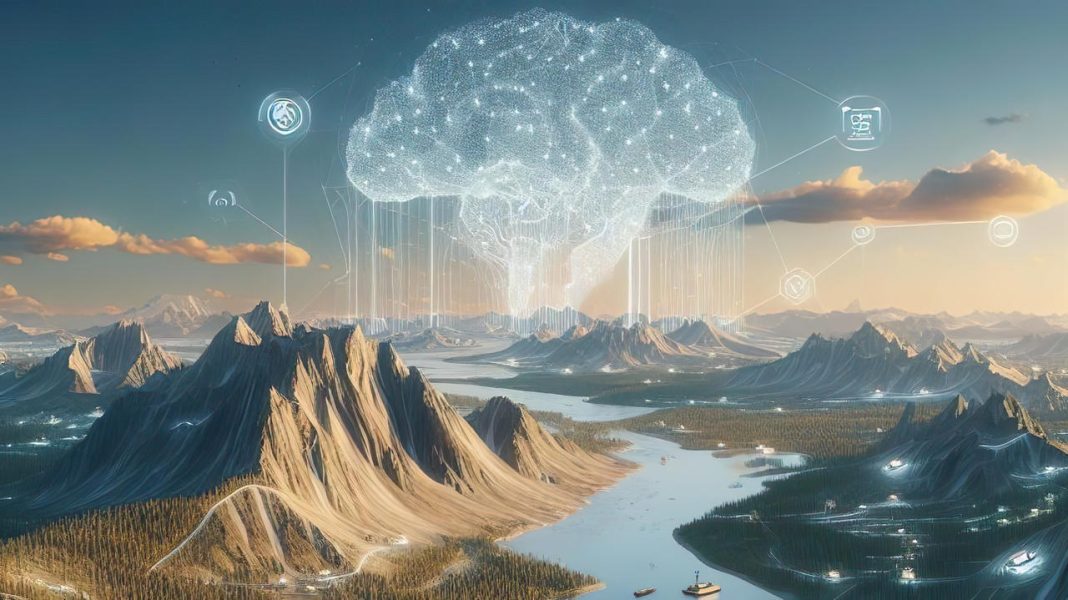In the era of technological marvels, artificial intelligence (AI) has emerged as a formidable ally in the fight against environmental degradation. This synergy between AI and environmental conservation is not just a beacon of hope but a dynamic toolset reshaping our approach to preserving the planet. This article delves into how AI technologies are revolutionizing conservation efforts, from monitoring biodiversity to tackling climate change, offering a glimpse into a sustainable future empowered by intelligent solutions.
AI: A Game-Changer in Conservation Strategies
The intersection of AI and environmental conservation represents a pivotal shift towards data-driven, efficient, and scalable solutions to some of the most pressing ecological challenges. AI’s capability to process and analyze vast datasets has unlocked new horizons in understanding and managing natural resources, monitoring wildlife, and predicting environmental changes with unprecedented accuracy.
Predictive Analytics in Climate Change Mitigation
AI’s predictive analytics are at the forefront of climate change mitigation, offering tools to model and forecast climate patterns with remarkable precision. These models enable scientists and policymakers to anticipate climate-related disasters and develop proactive strategies to mitigate their impact, ensuring communities and ecosystems are better prepared for the changes to come.
Wildlife Conservation and Biodiversity Monitoring
AI-driven technologies, such as automated image recognition and drone surveillance, are revolutionizing wildlife conservation. By analyzing images and videos captured in the wild, AI algorithms can identify species, count populations, and monitor the health of ecosystems without human intrusion. This not only provides real-time data on biodiversity but also helps in tracking poaching activities, enabling timely intervention to protect endangered species.
Smart Agriculture and Sustainable Land Use
In the realm of agriculture, AI is paving the way for sustainable practices that optimize resource use and minimize environmental footprints. Through precision farming, AI algorithms analyze data from satellite images, soil sensors, and weather forecasts to advise farmers on crop rotation, irrigation, and pest control. This targeted approach enhances yield while conserving water and reducing the need for chemical fertilizers and pesticides.
AI in Energy Efficiency and Renewable Resources
The transition to renewable energy sources is crucial in combating climate change, and AI is playing a key role in making energy systems more efficient and sustainable. AI optimizes energy consumption in buildings, predicts renewable energy output, and facilitates smart grid management, ensuring a reliable and clean energy supply.
Ethical and Practical Considerations
While AI offers promising solutions for environmental conservation, it’s important to navigate the ethical and practical challenges that accompany its deployment. The energy consumption of AI systems, data privacy, and the need for inclusive technologies that serve all communities are critical considerations that must be addressed to fully harness AI’s potential for the planet.
The Way Forward
The fusion of AI and environmental conservation opens a new chapter in our stewardship of the planet. By leveraging AI’s capabilities, we can enhance our understanding of the natural world, make informed decisions, and implement effective conservation strategies. However, the journey ahead requires a collaborative effort among technologists, environmental scientists, policymakers, and communities to ensure that AI technologies are developed and used responsibly and sustainably.
As we stand at the crossroads of technological advancement and environmental stewardship, the integration of AI into conservation efforts symbolizes a leap towards a sustainable and resilient future. Embracing AI as a tool for environmental conservation not only empowers us to safeguard our planet but also redefines our relationship with the natural world, promising a legacy of sustainability for generations to come.

